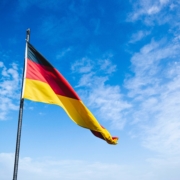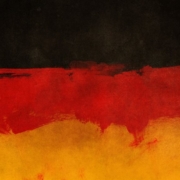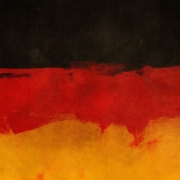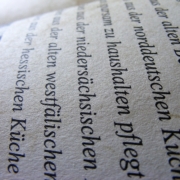8 German compound words that have a surprising meaning whether you speak German or not
Compound words? They are a classic of the German language. These however have a very unpredictable meaning
When learning German, one of the most common obstacles encountered by students lies in the difficulty of memorizing a very large lexicon of which one often struggles to remember the meaning, especially due to the difficulty in recognizing the root of the word. One advantage of German is, however, the tendency to make extensive use of compound nouns and verbs. Learning the meaning of suffixes and prefixes is therefore very useful to construct the meaning of a compound verb of which we know the primary meaning. During this meticulous process of destruction and composition of the language (evidenced by the German correspondent Wortzusammensetzung), which is becoming more and more pleasing to those who wish to know German and master it better, it is also possible that German will make us smile, giving us words that have an unusual meaning longing to a remote past.
Here are just a few German words that have an unexpected meaning.
Klobrille
When you first arrive in Germany and hear speaking of “toilette glasses” it might be quite disorientating. After asking to repeat the question we discover that, yet, klobrille is actually a word, and it is simply the toilet seat!
Brustwarze
This word is composed by two terms, wart and breast, that blended together might create a not so pleasant image. In reality it does not refer to strange anatomical blemishes, but to a part of the body that Germans, perhaps for the analogy of the form, call warts: nipples! When you will find yourself talking about nipples in German, be sure that this part of the body will have lost all of its charm.
There is no need to change zone then to find out that the most intriguing female garment, the bra, in German has a name similar to that of a posture corrector tutor, Büstenhalter, «breast-sustainer».
Eselsbrücke
If you think that this term, which literally means «donkey bridge» is a German invention to further confuse non-native speakers, you are mistaken. Nowadays the term is used in German to indicate a method, a word or phrase that allows you to remember something better. The question is: what do donkeys have to do with this?
The answer is sought in the past and in the latin location of pons asinorum, used in philosophy to indicate figures that allow less experienced subjects to understand a more complex concept, and in mathematics it is used in reference to the difficulty of understanding the fifth Euclide theorem on the isosceles triangle. It has thus an ambivalent meaning, on the one hand, of a device that facilitates understanding for the less learned, on the other, it indicates a «dormant» donkey backbone difficult to overcome.
Durchfall
Even if this term might seem hard to grasp, the English correspondent diarrhoea presents a morfology deriving from the Greek δια+ρρέω (dia+rrheo) “to scroll through”. If you unpack the German word, the Greek influence becomes apparent.
Donnerstag
Thursday in German is the day of thunder. Translated in English, the German correspondent Donners-tag would be Thunder-day, an analogy that shows the link amid these two languages. After all also in Italian (Giovedì), French (Jeudi) and Spanish (Jueves), the reference to Jupiter becomes clear. The fourth day of the week is thus dedicated to more than one nation to the god of thunder!
Mutterkuchen
When they talk about “mom’s cake” Germans don’t refer to a dessert to have for breakfast but to something very different. Mutterkuchen means placenta, but also this compound word doesn’t come out of nothing. The term placenta derives from Greek πλακοῦς (plakous), an adjective that indicates something with “crushed form”. The adjective then passed through latin with the meaning of flatbread. Why call flatbread this vascular organ? Because the placenta has a crushed form and through it the fetus can be fed, just like a flatbread.
Fernseher
To understand why in German television is referred to with a term that literally means «distant observer», it is enough to trace the etymology of the word. The prefix comes from Greek and means «far away», so it indicates a vision from afar, just like that of images projected from the screen of a TV. In German, the correspondent of ‘tele’ is fern.
Flusspferd
Even for this last example, before we put our hands between the hair of despair and blaming Germans for being incomprehensible, we should think of the origin of the corresponding term in English. Flusspferd, literally «river horse», in English means hippopotamus. This term from a somewhat funny sound comes from Greek where hippos means horse and potamos river, so the German language copied the same structure of the word, using the terms of its own idiom.
In conclusion, to have some explanation about some creative composite words, we should ask the direct people concerned, that is, our ancestors who created them!
—————————-
Is German stating to intrigue you? Then take a look at the German courses that Berlino Schule organizes!












Dejar un comentario
¿Quieres unirte a la conversación?Siéntete libre de contribuir!